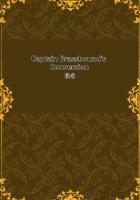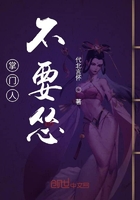As Pinto, he told much of his secret history to Mr. Thackeray, who says: "I am rather sorry to lose him after three little bits of Roundabout Papers."
Did Saint-Germain really die in a palace of Prince Charles of Hesse about 1780-85? Did he, on the other hand, escape from the French prison where Grosley thought he saw him, during the French Revolution? Was he known to Lord Lytton about 1860? Was he then Major Fraser? Is he the mysterious Muscovite adviser of the Dalai Lama? Who knows? He is a will-o'-the-wisp of the memoir-writers of the eighteenth century. Whenever you think you have a chance of finding him in good authentic State papers, he gives you the slip; and if his existence were not vouched for by Horace Walpole, I should incline to deem him as Betsy Prig thought oValet's Historyf Mrs. Harris.
The Man in the Iron Mask
I
THE LEGEND
The Mystery of the Man in the Iron Mask is, despite a pleasant saying of Lord Beaconsfield's, one of the most fascinating in history. By a curious coincidence the wildest legend on the subject, and the correct explanation of the problem, were offered to the world in the same year, 1801. According to this form of the legend, the Man in the Iron Mask was the genuine Louis XIV., deprived of his rights in favor of a child of Anne of Austria and of Mazarin. Immured in the Isles Sainte-Marguerite, in the bay of Cannes (where you are shown his cell, looking north to the sunny town), he married, and begot a son. That son was carried to Corsica, was named de Buona Parte, and was the ancestor of Napoleon. The Emperor was thus the legitimate representative of the House of Bourbon.
This legend was circulated in 1801, and is referred to in a proclamation of the Royalists of La Vendee. In the same year, 1801, Roux Fazaillac, a Citoyen and a revolutionary legislator, published a work in which he asserted that the Man in the Iron Mask (as known in rumor) was not one man, but a myth, in which the actual facts concerning at least two men were blended. It is certain that Roux Fazaillac was right; or that, if he was wrong, the Man in the Iron Mask was an obscure valet, of French birth, residing in England, whose real name was Martin.
Before we enter on the topic of this poor menial's tragic history, it may be as well to trace the progress of the romantic legend, as it blossomed after the death of the Man, whose Mask was not of iron, but of black velvet. Later we shall show how the legend struck root and flowered, from the moment when the poor valet, Martin (by his prison pseudonym "Eustache Dauger"), was immured in the French fortress of Pignerol, in Piedmont (August, 1669).
The Man, in connection with the Mask, is first known to us from a kind of notebook kept by du Junca, Lieutenant of the Bastille. On September 18, 1698, he records the arrival of the new Governor of the Bastille, M. de Saint-Mars, bringing with him, from his last place, the Isles Sainte-Marguerite, in the bay of Camnes, "an old prisoner whom he had at Pignerol. He keeps the prisoner always masked, his name is not spoken . . . and I have put him alone, in the third chamber of the Bertaudiere tower, having furnished it some days before with everything, by order of M. de Saint-Mars.
The prisoner is to be served and cared for by M. de Rosarges," the officer next in command under Saint-Mars.[1]
[1] Funck-Brentano, Legendes et Archives de la Bastille, pp. 86, 87. Paris, 1898, p. 277, a facsimile of this entry.
The prisoner's death is entered by du Junca on November 19, 1703.
To that entry we return later.
The existence of this prisoner was known and excited curiosity. On October 15, 1711, the Princess Palatine wrote about the case to the Electress Sophia of Hanover, "A man lived for long years in the Bastille, masked, and masked he died there. Two musketeers were by his side to shoot him if ever he unmasked. He ate and slept in his mask. There must, doubtless, have been some good reason for this, as otherwise he was very well treated, well lodged, and had everything given to him that he wanted. He took the Communion masked; was very devout, and read perpetually."
On October 22, 1711, the Princess writes that the Mask was an English nobleman, mixed up in the plot of the Duke of Berwick against William III.--Fenwick's affair is meant. He was imprisoned and masked that the Dutch usurper might never know what had become of him.[1]
[1] Op. cit. 98, note I.
The legend was now afloat in society. The sub-commandant of the Bastille from 1749 to 1787, Chevalier, declared, obviously on the evidence of tradition, that all the Mask's furniture and clothes were destroyed at his death, lest they might yield a clew to his identity. Louis XV. is said to have told Madame de Pompadour that the Mask was "the minister of an Italian prince." Louis XVI. told Marie Antoinette (according to Madame de Campan) that the Mask was a Mantuan intriguer, the same person as Louis XV. indicated.
Perhaps he was, it is one of two possible alternatives. Voltaire, in the first edition of his "Siecle de Louis XIV.," merely spoke of a young, handsome, masked prisoner, treated with the highest respect by Louvois, the Minister of Louis XIV. At last, in "Questions sur l'Encyclopedie" (second edition), Voltaire averred that the Mask was the son of Anne of Austria and Mazarin, an elder brother of Louis XIV. Changes were rung on this note: the Mask was the actual King, Louis XIV. was a bastard. Others held that he was James, Duke of Monmouth--or Moliere! In 1770 Heiss identified him with Mattioli, the Mantuan intriguer, and especially after the appearance of the book by Roux Fazaillac, in 1801, that was the generally accepted opinion.
It MAY be true, in part. Mattioli MAY have been the prisoner who died in the Bastille in November 1703, but the legend of the Mask's prison life undeniably arose out of the adventure of our valet, Martin or Eustache Dauger.
II
THE VALET'S HISTORY















